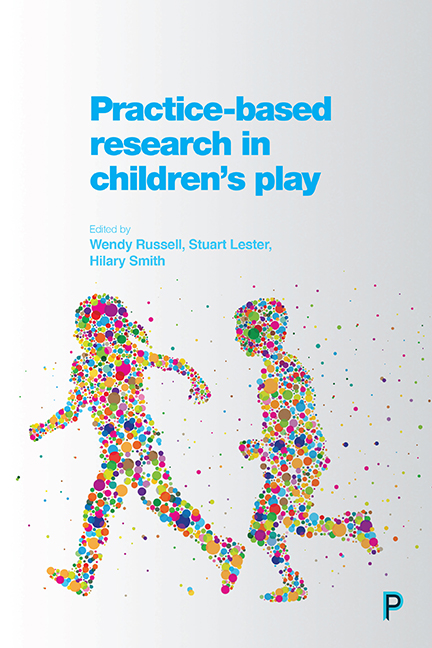Book contents
- Frontmatter
- Contents
- List of figures
- Notes on contributors
- Acknowledgements
- Foreword
- One Perspectives on play research: the practice-theory-research entanglement
- Part One Then and now: historical perspectives
- Part Two Here and there, this and that: spatial and creative perspectives
- Part Three Playfulness and wellbeing
- Closing thoughts
- Appendix: The Playwork Principles
- Index
Four - Adventure playgrounds and me: bringing the past into the auto-ethnographic present
Published online by Cambridge University Press: 05 April 2022
- Frontmatter
- Contents
- List of figures
- Notes on contributors
- Acknowledgements
- Foreword
- One Perspectives on play research: the practice-theory-research entanglement
- Part One Then and now: historical perspectives
- Part Two Here and there, this and that: spatial and creative perspectives
- Part Three Playfulness and wellbeing
- Closing thoughts
- Appendix: The Playwork Principles
- Index
Summary
Introduction
This is a very personal study aimed at exploring why adventure playgrounds (APGs) have had such a fascination for me for over 40 years. It weaves a critical and narrative ethnography with an affectbased auto-ethnography (Denzin, 2006; Jones, 2008; Dewsbury, 2009), resulting in various voices and approaches: at times I am researcher, narrator and participant. The research involved an immersion in my own history with APGs aided by a process of mutual recollection via email with five participants who shared that history, (re)visiting APGs in London, Copenhagen and Berlin, and a process of observation and reflection that paid attention to my embodied and affective responses to this immersion (Dewsbury, 2009). By ‘enacting a way of seeing and being’ (Denzin, 2006, p 422) and through paying attention to bodily senses and sensations (Küpers, 2009) I hoped to contribute something new to articulating the significance of APGs. Four themes emerged from this iterative and intuitive process: the mindful audacity of APGs, APGs as places of drama and unspoken narratives, APGs as spaces that are alive in many ways, and the hope that arises from this process of sensemaking.
A physical and metaphorical journey
This explorative study has been for me both a physical and metaphorical journey. I move away from the ‘know-and-tell dogma’ (Dewsbury, 2009, p 1) of social research and instead present a postmodern, nonrepresentational or performative approach to sociology within an embodied epistemology. The feelings from my past include physically retracing my steps and revisiting APGs to carry out in situ witnessed observations, presencing memories via email with participants and analysing a range of accumulated data including photos, diaries, drawings and rich pictures. I drew heavily on Palmer et al's (2007) narrative style in describing APG experiences, and Palmer's use of adults’ memories of the 1980s to describe APGs working with ‘the natural rhythms of communities’ (Palmer, 2008, p 132).
“Being at the playground was very much like having a GIANT family, we would always have the best of times but would also fight, argue and fall out with each other, but not for long!
- Type
- Chapter
- Information
- Practice-Based Research in Children's Play , pp. 53 - 74Publisher: Bristol University PressPrint publication year: 2017



